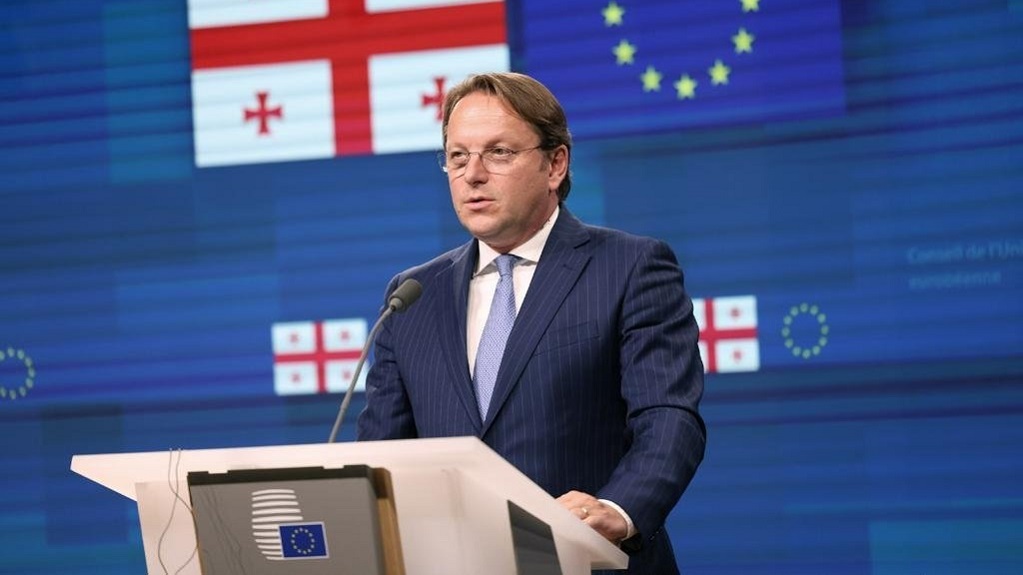1.9 billion euros of investments were mobilized through the Economic and Investment Plan (EIP) to Georgia. According to European Commissioner for Neighborhood Policy and Enlargement, Oliver Varhelyi, the investments will be allocated to sectors such as energy, transport, small and medium businesses, the environment, and access to finance.
News
"I think that the candidate status granted to Georgia only two months ago shows already its benefits, and it already pays dividends, not only for Georgia and the people of Georgia, but also for the European Union,” Varhelyi said after the meeting of the Georgia-EU Association Council.
“We have agreed to speed up our work, be it the progress on the EU path and the nine steps that still need to be done, be it the implementation of the Economic and Investment Plan, be it the economic reform and overhaul of Georgia to make it a truly European country and to make it part of the European Single Market.
We've seen that in the enlargement tasks, Georgia has been not only able to deliver, but also willing to deliver. This is what has been reflected by the decision of our leaders, and this is why now it is crucial to capitalize on this decision, and this is why we have been asking our Georgian friends to speed up their work, be it the judicial reform, be it other parts of the Reform Agenda that we have set out together in the nine steps, so that we can move also to the next stage, because this is the purpose of the exercise, it is to get Georgia into the European Union.
There's a lot of work ahead of us, and with the decision of becoming a candidate country, the work will only be more.
Now on the Economic and Investment Plan, I think that we can be quite pleased to see that already we have mobilized 1.9 billion euros of investments through the Economic and Investment Plan to Georgia. These are investments that are going directly to the economy of Georgia. These are going to sectors like energy, transport, access to finance, SMEs, environment, or even human development. These are investments that are delivering already growth and jobs on the ground, and I think with this plan, we have still quite a bit of potential left, which we have agreed to use even faster and even more.
Maybe the most important and most tangible project that we have in front of us is the Black Sea electricity and broadband internet cable project. This is a landmark project, and not only a landmark project, but this is something which should serve as a blueprint with other partners, not only in the Eastern partner countries, but also in the Southern neighbourhood, or even in the Western Balkans. This model that we have been able to create, namely, to bring green electricity to Europe and bring broadband, high-speed internet, and therefore digital economy to Georgia, should serve a blueprint for all our partner regions.
Georgia has all the potential to become the centre of a new trade route, but for that we need the Black Sea to become the next corridor towards Europe, and for that we need to refurbish the ports of Georgia.
I also mentioned the very imminent integration, the early integration as it is called in the EU jargon, which is also there as an open opportunity for Georgia, and the first two areas where we have made already progress is roaming and the so-called European Single Payment Area.
In the roaming, we were very pleased to see how quickly the Georgian government has moved, and by now we have everything at our disposal to make a proposal to the Council to integrate Georgia as fast as we can into the European roaming area, the roam-like-at-home area, bringing down roaming costs significantly and data costs significantly in Georgia and for Georgians traveling around and Georgians working and living in Europe. This will be, I think, a landmark change also for the people of Georgia, something that they can see, use, as tangible, might I say, as the visa liberalization.
The second area where we're working is the European Single Payment Area, where we see still tasks ahead of us, but it is very important to note that we are open whenever Georgia is ready in terms of its legislative alignment and enforcement capacity to enforce our rules in the banking sector to integrate Georgia as fast as we can into the European Single Payment Area”, said the Commissioner during press conference in Brussels.
According to Oliver Varhelyi, there are clear conditions for the country to become a member of the European Union, and if Georgia fulfills them by 2030, the European Union should be ready to accept it.















